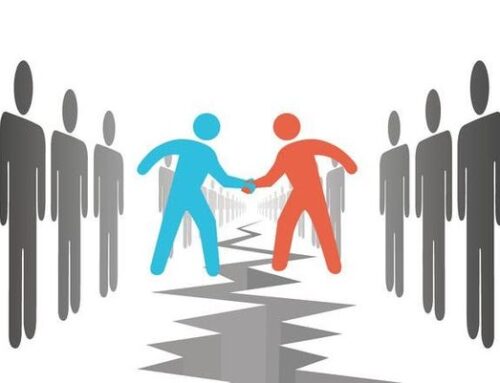Stuff = Stress
February 14, 2017
The more stuff we have, the more stress we experience.
Sometimes we believe the opposite is true. We see a new gadget, piece of furniture, or pair of shoes, and we just have to have it. We feel like it will definitely improve our lives in a tangible way. Maybe the stuff promises to make our lives easier, or improve our quality of life.
Most of the time, however, the stuff doesn’t improve our lives at all. And often, accumulating more stuff will actually decrease our happiness. Here’s why:
- There’s more stuff to keep track of. The more stuff we have, the more we have to monitor what we have. Keeping track of our stuff takes time and energy, which increases our stress. On the other hand, when we live a more minimalist lifestyle, there’s less stuff to keep track of. We can apply our time and energy toward our relationships and our most important goals.
- More stuff = more maintenance. You have to spend time and money to maintain your stuff. For example, since I have three cars, I have to get the oil changed on three cars, renew my registration on three cars, and pay for repairs on three cars. Making sure all our stuff is in sound working order takes time and energy. Having more stuff means more things break down and need to be fixed, which increases our stress.
- There’s more stuff to lose. The more we have, the more we have to lose. The more connected we are to our stuff, the more difficult it will be for us when losses inevitably happen. For example, I remember hearing about a report of a robbery in my apartment building. I didn’t worry about it too much, because I don’t have anything that would be terrible for me to lose. But if I were more connected to my stuff, the experience (or even anticipation) of losing it would increase my stress.
- Stuff distracts us from what actually brings us true happiness. Stuff doesn’t bring us true happiness. We think it will, but it doesn’t. The main things that bring us true happiness tend to be satisfying relationships, meaningful work, and adequate leisure time. Having a lot of stuff can actually distract us and direct time and energy away from the things that bring us true happiness.
- We accommodate to the new level of stuff. Research shows that when we get new stuff that we really want, our level of happiness might see a small increase, but it is extremely short lived, and we soon return to our previous level of happiness. The reason is we accommodate very quickly to new stuff. It doesn’t matter what it is—a new pair of shoes, car, or even a house. Before long, we will return to the level of happiness we had before the stuff entered our life.
So what’s the alternative? We live in a consumer-driven society, so we are constantly bombarded with advertising selling us stuff that we don’t need. How do we get ourselves out of the hamster-wheel of wanting and buying more and more stuff?
- Give your stuff away. A great intervention is to spend a Saturday afternoon going through your home, with the purpose of finding stuff to give away. Haven’t worn that shirt in the last six months? Give it away. Is that extra toolbox just collecting dust? Give it away. Clearing out your house of all your junk will reduce your stress, and you will also feel good about donating your unused stuff to someone who might actually need it.
- Resist urges to buy more stuff. I often buy stuff on a whim, without actually thinking it through. If you struggle with this “buying stuff compulsion” as well, here’s a quick intervention to reduce your urges to buy more stuff. It’s called the 30-day rule. How it works is that when you feel the urge to buy something, write it down on a piece of paper, along with the date you felt the urge to buy it. Then wait 30 days. If you still feel like you want the item, and it is a wise purchase, go ahead and buy it. But often, you will find the urge has faded, and you didn’t really want the stuff that badly in the first place.
- Focus your energy elsewhere. Spend some time thinking about what activities give you the greatest sense of meaning. If you are like most people, you probably feel the greatest sense of meaning from engaging in close relationships, pursuing meaningful work, connecting with God or something larger than yourself, and helping those less fortunate than you. Try to focus more of your energy on these pursuits, instead of accumulating more and more stuff.
Discussion: How do you feel about the stuff in your life? Does it bring you happiness, or just cause you to feel more stress? What is one step you could take toward limiting the stuff in your life?
Related Thoughts
No Comments
Leave A Comment

Subscribe To My Newsletter
Join my mailing list to receive the latest blog posts.
Receive my e-book “The Mental Health Toolkit” for free when you subscribe.






[…] Byron Katie argues that all our problems–all stress, anxiety, and depression, are due to our own problematic thinking. Because of this, our problems […]